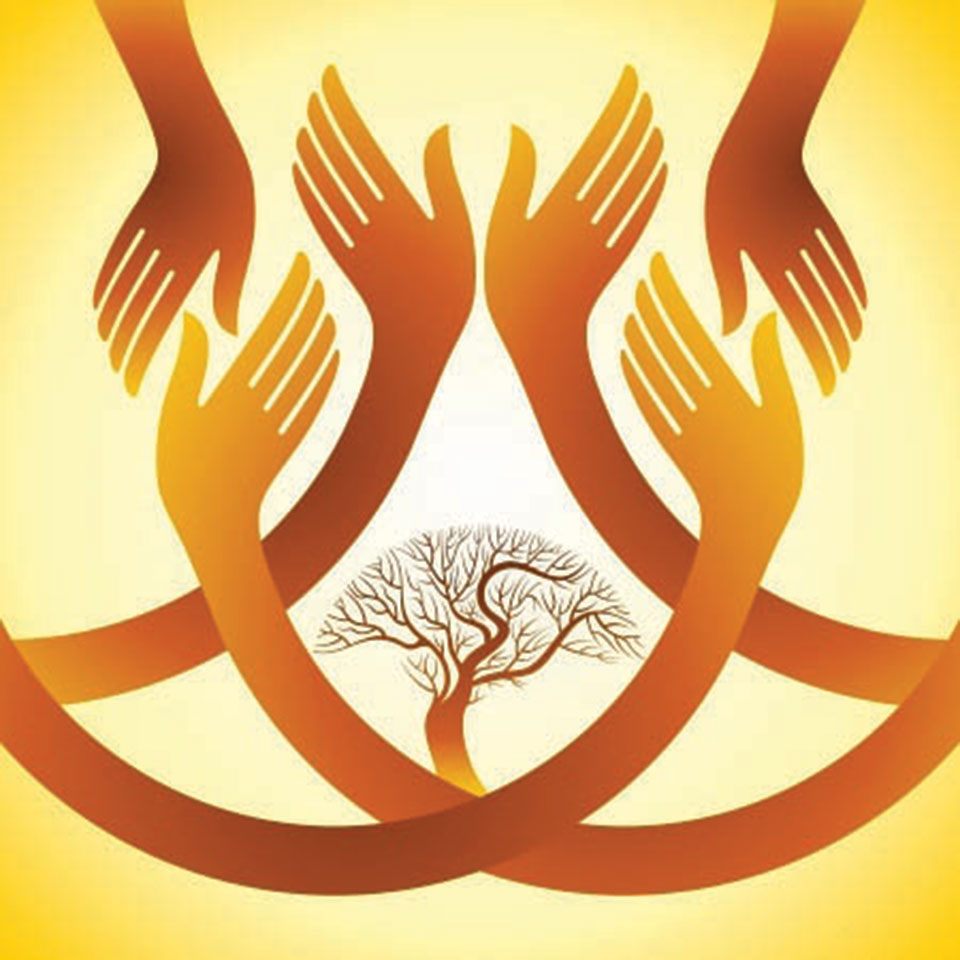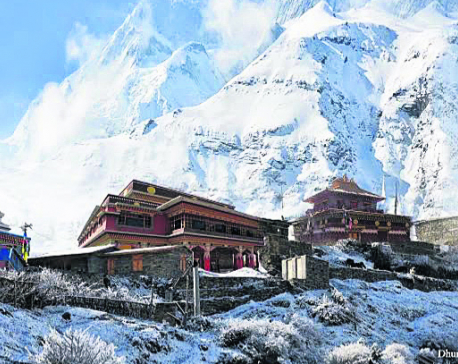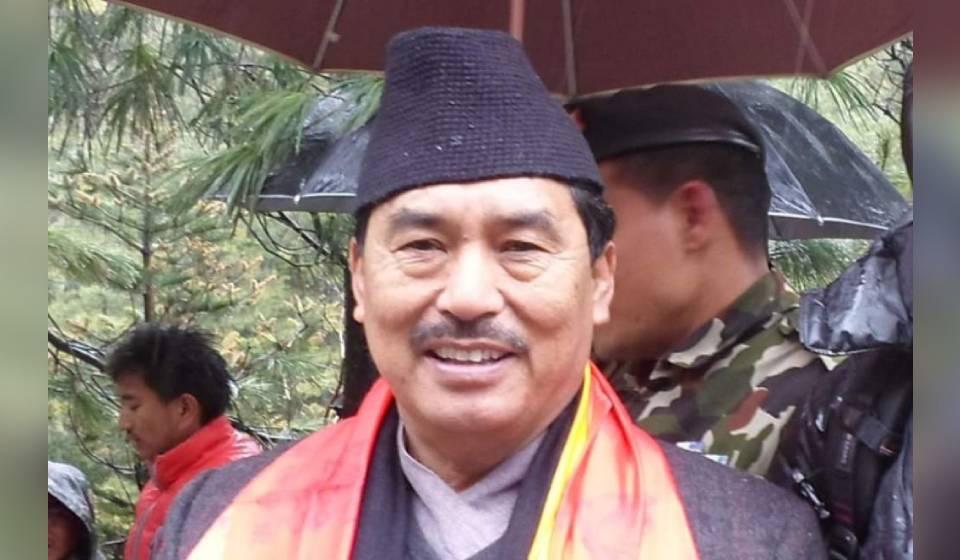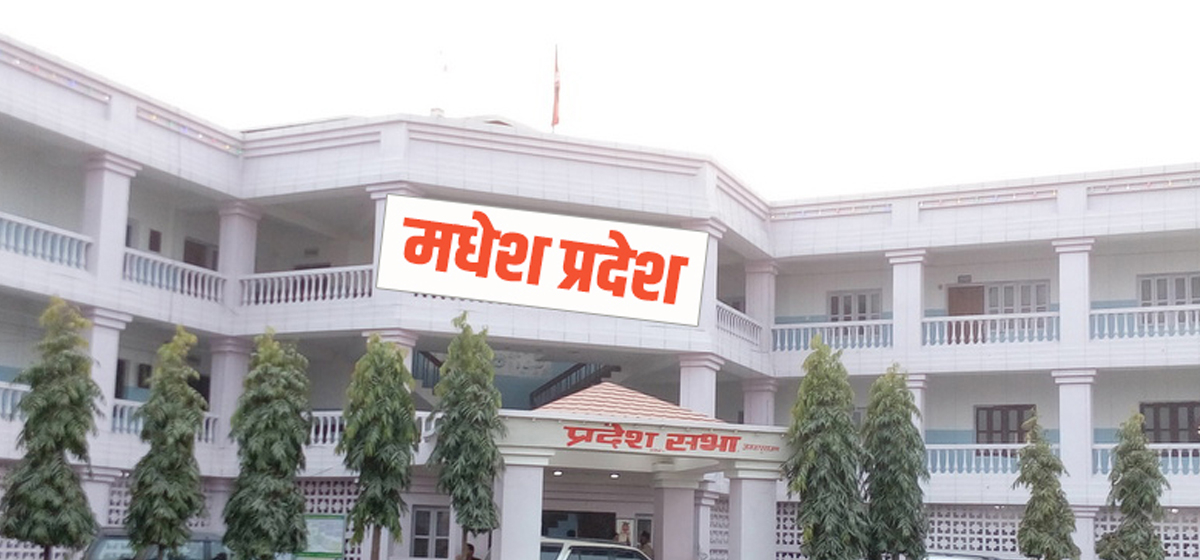
OR
International Volunteer Day


Simone Galimberti
Simone Galimberti is the Co-Founder of ENGAGE, an NGO partnering with youths to promote social inclusion in Nepal.simone_engage@yahoo.com
The country is moving towards an inclusive policy to formulate a National Volunteering Policy, an essential tool to enable the sector.
Here we I am again with my annual piece for the International Volunteer Day that every year is celebrated on December 5. Differently, actually very differently from previous editions where it was more of a grumbling for lack of actions or more of a day dreaming, this year finally we have some good news. Something is happening for real.
My end of the year’s optimism, after, despite all the doom and gloom around in Nepal and elsewhere, is driven by a strong willingness by the government of Nepal to come up with a national volunteering policy. It was time!
The Policy Research Institute, a new government think tank, is taking the lead and it is partnering with civil society organizations to come forward with some recommendations to lay forward the key cornerstones of a soon to-be-drafted national policy.
Youth Advocacy Nepal, YAN, a leading not-for-profit organization in the country is working hard to build, together with the United Nations Volunteers (UNV), a strong coalition of organizations, groups and individuals willing to participate in the drafting process.
We are still very much at the beginning as a National Volunteering Policy Workshop was recently held on November 30 under the coordination of YAN in partnership with the government of Nepal, UNV and a group of organizations and agencies involved and engaged in the volunteering sector.
A real task force coordinated by UNV was set up to design the event and strides were made to ensure the inclusion of marginalized and vulnerable groups that normally struggle to fully participate in such policy making discussions.
For example Sarita Thulung, a disability activist and para sports champion where she excels in wheelchair basketball but more recently one of the best para-swimmers the country has ever had, was given the chance to open the program with a powerful speech on inclusive volunteering and role youth and persons with disabilities can play in developing the nation.
Her speech was important because as many of you are aware, the international volunteer day falls in the same week of other important commemorations, including the International Day of Persons with Disabilities marked every year on December 3.
Finding ways to connect the dots is essential because at the end of the day, volunteerism is all about providing time, energies and skills to the most pressing needs faced by the society.
Members of different communities, normally excluded and neglected, were also actively invited to contribute to the discussions, including members from the Madhesi communities and Dalits. Overall on November 30, there were hundreds of participants from across the country all connected virtually with several parallel groups discussing the specific contributions volunteerism is making for the overall development of the country.
While the final report of this workshop is still being finalized, we have an incredible opportunity here to really create an inclusive movement to promote volunteerism, one of the best expressions of Nepal’s social capital.
I am confident that the Policy Research Institute will move the ball forward and push ahead with an inclusive and participatory process of drafting the policy while keeping in mind that it is going to be essential to keep nourishing and sustaining the national volunteering “ecosystem”.
Such ecosystem is made up by thousands of organizations and groups, many of which informally volunteering, that are passionate about making Nepal a better place to live for all.
Today there will also be a national event that will bring together key policy makers to discuss about the importance of volunteerism in the country and initiate a more formal debate on its future.
A national policy is certainly going to be very important but we cannot stop there for a policy is just a tool.
The policy itself, even when approved, will only become effective and transformative if individuals, groups, organizations involved in volunteering will feel a sense of ownership over it and that’s why the next weeks and months will be paramount.
How can we strive to find a balance between formal and informal forms of volunteering? How can volunteers at local and national levels be better recognized for their endeavors? What will be the role of local governments, the engines of development according to the federal set up of the country, and the role of the federal government? How specific and prescriptive the policy should be and how flexible should it be to address key strategic sectors like education, health, disaster management and social development? Will the drafting process of the policy also help to better pitch volunteering as a key component to achieve the Sustainable Development Goals? Will the National Planning Commission and other key ministries understand the essentiality in investing in volunteerism for the long-term prosperity of the country? Does Nepal need to have again some sort of national level schemes or should just enable local organizations promoting volunteerism to thrive?
As you can see there are a number of questions to be addressed.
Creating an enabling environment with less red tapes and more funding for local volunteering initiatives is going to be a precondition to fostering, on the long run, a thriving volunteering ecosystem.
At the same time despite its flaws, I miss the National Development Volunteering Scheme that was centrally run as part of the National Planning Commission. The National Youth Council is going to have a huge role to promote volunteering in the future and the Council is playing a big role today in the main celebratory event. This is good news because we need leadership at governmental levels.
At the same time, we should not forget that volunteering should be a right for every citizen, regardless of their age or status. It is not going to be easy to come up with the right “recipe” to bring volunteerism to the next level.
UNV, that is currently leading a series of discussions on how to better frame volunteering in the pursuit of the Agenda 2030, is also going to play an indispensable role as knowledge partner and facilitator.
Ultimately it will be up to the government to decide the way forward to strengthen volunteering in the country but the participatory approach used in initiating the discussions for the national policy is really encouraging. I sincerely hope that the informal “consortium” that worked assiduously to organize this year’s celebrations will remain united and cohesive in the future. I see in it an informal volunteering network.
Maybe many do not like the word “network” and that’s ok. We can call it a different name or simply move on informally yet having organizations, agencies and even individuals really working hard day in and day out to change the country through volunteering is essential and they must remain close to each other. Today’s event will also unfold the winners of the National Volunteering Awards, another excellent work of partnerships and high level of professionalisms in making the awards a BIG DEAL. That’s the way volunteerism should be, a BIG DEAL.
Happy International Volunteer Day!
(For those interested to participate in today’s main event, it will run virtually from 2pm to 4pm. Registration link: https://bit.ly/37otb8w)
The author is the Co-Founder of ENGAGE, an NGO partnering with youths to promote social inclusion in Nepal.
simone_engage@yahoo.com
You May Like This

Outreach Nepal lifts Nepal Ice AAN Futsal
KATHMANDU, May 13: Outreach Nepal has lifted the first ever Nepal Ice AAN Futsal Tournament 2018 defeating Media Basket by a... Read More...

Dhurmus, Suntali to build ‘a Nepal within Nepal’
KATHMANDU, June 5: After successfully completing three settlement projects for earthquake victims and other communities, the actor couple Sitaram Kattel (Dhurmus)... Read More...

SCOPE Nepal provides foil blankets to Nepal Army
KATHMANDU, Jan: SCOPE Nepal, an NGO working in peace, security, environment and social justice, handed over 378 emergency foil blankets to... Read More...

Just In
- Russia warns NATO nuclear facilities in Poland could become military target
- 16th Five Year Plan: Govt unveils 40 goals for prosperity (with full list)
- SC hearing on fake Bhutanese refugees case involving ex-deputy PM Rayamajhi today
- Clash erupts between police and agitating locals in Dhanusha, nine tear gas shells fired
- Abducted Mishra rescued after eight hours, six arrested
- Forest fire destroys 13 houses in Khotang
- First meeting of Nepal-China aid projects concludes
- Lungeli appointed as Minister for Labor and Transport in Madhesh province govt
















Leave A Comment